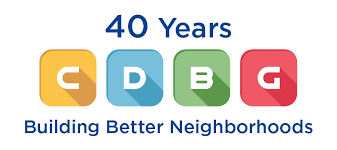By Morgan Bryce
Staff Reporter
Since 2000, a federal funding program from the U.S. Department of Housing and Urban Development called the ‘Community Development Block Grant’ has been helping to rebuild the homes and lives of citizens in Opelika.
Designated for individuals and families with low-to-moderate incomes, the spending of Opelika’s CDBG monies is budgeted by the city’s Community Development Administrator Lisa Thrift.
Thrift explained that Opelika is listed by HUD as an ‘entitlement’ city, which means that the city is guaranteed to receive CDBG funding annually. Non-entitlement cities have their money funneled to them through the Alabama Department of Economic and Community Affairs, and must compete against others in the state to receive funding.
“It (CDBG funding) is based on the city’s population, level of poverty and need … we’re able to take those funds and they give us a formula of how to use the money and what to use it on. Every year, we have to put together an action plan on how we decide to use those funds,” Thrift said.
The majority of Opelika’s CDBG funding is set aside for housing and concentrated on the Carver and Jeter communities, but Thrift said small portions are used directly for community organizations like Opelika Main Street’s Façade Program, the East Alabama Food Bank and its Community Market, Twin Cedars Child Advocacy Center and the Community Wellness Center.
CDBG’s housing initiatives include the Emergency Home Repair Loan, Home Buyers Loan and First Time Homebuyer Loan programs, programs that Thrift said make a difference in the community.
“I’ve had someone sit there, and I had to income qualify them, and make sure they meet all the federal guidelines … and when I’m able to tell them I’ve put them in the system and that they qualify, and then they start to cry … oh my,” Thrift said. “We average 15-18 home repairs each year (and) we close on about five to six houses a year, getting new homeowners into homes,” Thrift said.
Repairs available through the Emergency Home Repair Loan program include the restoration of broken plumbing and rotten flooring, as well the installation of new water heaters or showering sytems.
Thrift said CDBG applications are still available, and encourages Opelikans in need to contact her and let her see what she can do to help them.
“If there’s anything we can do to help, don’t just sit there and do nothing … please, if you need assistance, come see me and let me see if I can help you,” Thrift said.
For more information on income qualifications for CDBG, visit www.hudexchange.info. Thrift can be contacted at (334) 705-5155. The Community Development Office is located at 700 Fox Trail.

